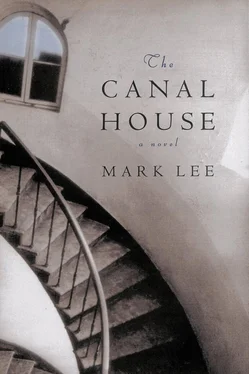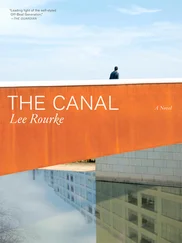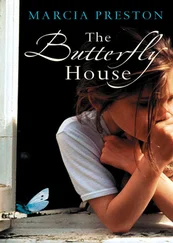Daniel reached into his shirt pocket and took out a ballpoint pen and notebook. “Reverend Okello, you are obviously a great leader. But some people have criticized you for taking children away from their families. How would you answer them?”
“Their parents were wicked,” Okello said. “I have become a new father and mother for these children.”
Daniel asked another question and the Prophet launched into a long answer that included a half-dozen biblical quotations. Other journalists might have softened their questions, but Daniel didn’t back down. Weren’t you whipped by the police, Reverend Okello? Didn’t you burn down a school? I wanted to shout at Daniel, That’s enough, don’t push it any further. But he kept going. I raised my camera a few times, but I didn’t have the nerve to take a picture.
Finally, Daniel slipped the notebook back in his pocket. “We’re honored to meet you, Reverend Okello. Now that we’ve heard your story, I can repeat your words to the rest of the world.”
“Or you could corrupt my message. Distort it.”
“That can’t be true,” Daniel said. “You predicted our arrival. Your power has brought us here.”
A few of the children shifted around in the dirt and Okello glared at them. If he denied that we were the correct messengers, then it might undermine his own prophecy.
“That is correct. I did summon you here. Which is why I will allow you to leave. Speak to your government. Tell them that we will give up the hostages for food, medicine, and weapons. Contact us through the military outpost at Jubba.”
“We need the boy to guide us back to Kosana.”
Okello gestured with his right hand, indicating that Isaac was a trivial matter. “Take him.”
“And we need to bring Joan Siebert as well. Her pulse is very weak. She might die if she stays here. If you release her, America and Britain will see this as the act of a powerful man. They’ll be more inclined to start negotiating for a trade.”
The Prophet considered this argument and everyone was quiet. Slowly, I raised the camera, but I didn’t bring it up to my eye. Judging the angle by experience, I squeezed off two quick shots. The camera shutter sounded incredibly loud, but no one reacted. A bead of sweat trickled down my neck.
Okello nodded and flicked his hand. “She may go as well.”
The Prophet returned to his hideaway and two seraphim came out with our water bottles and blankets. They had decided to keep Daniel’s sat phone, but we weren’t going to hang around and try to get it back. Back in the thorn enclosure, the hostages weren’t happy that only Joan was leaving. “I think we should all stay together,” Ray said. “We need to show some solidarity.”
“This is going to help everybody,” Daniel explained. “After Okello gives up the first person, he’ll want to trade the rest of the group.”
The hostages began to argue, but I thought up a distraction. I told Joseph Henning that he should write a letter to his family and we would pass it on to the German embassy in Kampala. The moment Joseph started writing, everyone else wanted the opportunity and then they argued about who would use my pen.
When all the notes were written, we left the enclosure with Joan and Isaac. A situation like this was a good time to take photographs. Everything is fluid, in motion, and no one concentrates on following the rules. I shot quickly. A desperate-looking girl. A half-naked little boy, clutching a rifle. And then we were out of the camp and hurrying down the trail. We followed Piramoi back to the mother tree. As we entered the dry riverbed, the archangel stood on a boulder watching us, like he wanted to come along. I figured that working for a murderous psychopath wasn’t a job with a long-term future.
“Good journey,” he said in English.
“Good journey to you.”
Daniel walked with Joan while Isaac and I were a few steps behind. The boy kept looking around him. “Did you see the Prophet?” he asked.
“Yeah. He talked a lot.”
“Are they going to kill me?”
“No. Everything’s okay. We’re going to go back to Kosana and see Dr. Cadell.”
Isaac relaxed a little bit and Joan began to talk to him as if he had just wandered into her library back in Wisconsin. The boy didn’t answer her, but she pretended they were having a conversation. Joan asked Isaac if he had ever seen a lion. “They’re very beautiful animals. Don’t you think?” she said. “But the male lions are so lazy. Their wives do most of the hunting.”
As the day went on, Joan began to get weaker. She felt dizzy and had to stop every ten minutes. Finally we reached our old campsite and opened up a can of tuna. After eating, Joan went to sleep and the rest of us sat there, staring at the flames.
“Is Mrs. Joan going to die?” Isaac asked.
Surprised, I looked across the fire. “No, Isaac. She’s going to be fine.”
“But she’s very sick.”
“Joan is tired and she needs some decent food. When we get back to Kosana, Dr. Cadell will make her feel better.”
A few minutes later Isaac went to sleep. Daniel was concealed within the shadows, but I caught a glimpse of his face when he leaned forward to toss some wood on the fire. He didn’t look happy about getting the interview.
“Isaac is worried about Joan,” he said. “I guess that’s a good sign.”
“She made an effort to talk to him today.”
He stared at the fire for a few minutes. “I pushed it too far, Nicky. I wasn’t thinking about what could happen.”
The next day started badly. Even with sips of water and deep breathing, Joan couldn’t walk five feet without getting dizzy. Daniel and I tried to bring her along in a fireman’s carry, but I tripped on a root and almost fell. After an hour of slow progress Daniel told Joan and me to wait beside a boulder. He walked off into the bush with Isaac, then they came back with two saplings they had turned into poles. We made a stretcher with the blanket and our shoelaces and then continued toward Kosana.
Joan was in pain, but Daniel distracted her with questions. Where were you born? What did your parents do? As we maneuvered the stretcher around rocks and bushes, Joan told stories about her teenage years. In high school, she’d dated a boy named Gordon whose family owned three lumber mills. Joan’s mother and her friends expected her to marry Gordon after he graduated from Princeton.
“Everyone liked Gordon,” Joan said. “But he was never serious about anything. That year I was on the debate team and that’s where I met Henry.”
Henry’s father owned a shoe store and his mother worked in the county clerk’s office. Henry drove a grocery delivery truck after school, but he read three newspapers at the library and knew the capital of Bolivia. Joan and Henry debated against capital punishment and they won four competitions together. One morning Henry invited her to the Snow Ball, the school’s big Christmas dance, and Joan accepted. She liked the fact that Gordon was jealous and her friends were horrified. Her mother announced that Joan had just thrown her life away.
A week before the dance Henry had an accident with the delivery truck and ended up in the hospital. Gordon appeared at Joan’s house carrying a bouquet of roses, and in a moment of weakness she agreed to go with him to the Snow Ball.
We laid the stretcher down and rested. Isaac crouched beside Joan and listened to her story.
“It was a beautiful dance. The decoration committee had rented one of those mirrored balls and little flashes of light whirred across the walls. I was dancing with Gordon and he was talking about how this was the best car and that was the best golf club and if anyone didn’t own the best, they were a fool. Right then I realized that Gordon was a nice boy, but that was all he was ever going to be—a boy pretending to be a man. So I said good-bye and asked one of the chaperones to drive me to the hospital. It was long past visiting hours, but I didn’t care. Wearing my white dress, I swept down the hallway and started looking for Henry.” Joan paused and drank some water.
Читать дальше












